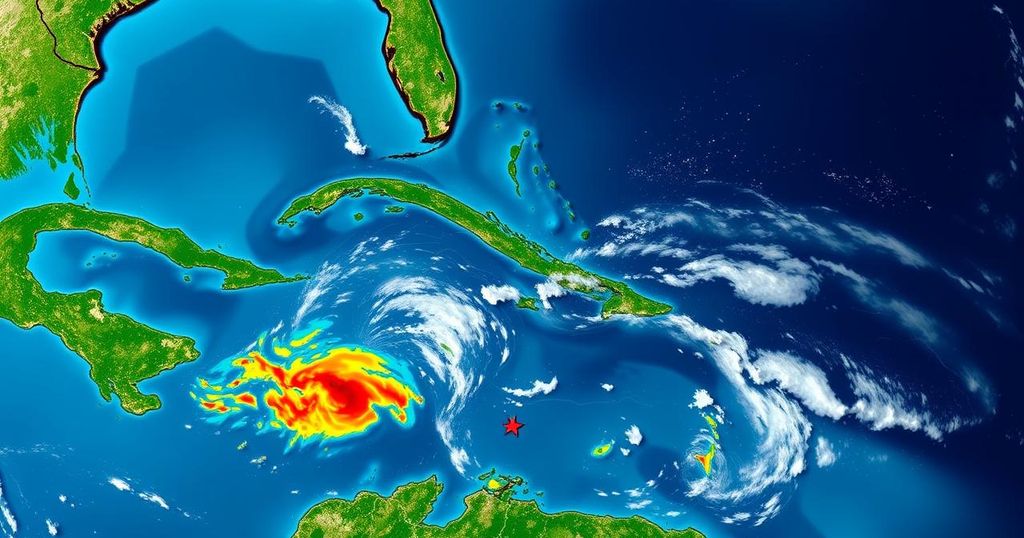Declining Odds for Tropical Storm Nadine as Monitoring Continues
The National Hurricane Center has noted a reduced chance of Tropical Storm Nadine forming, with current probabilities at 30% for the next 48 hours and 40% over the next week. AL94, originating off Africa’s west coast, is expected to traverse the northern Caribbean, impacting regions such as Puerto Rico and Jamaica, while remaining south of Florida. Another system in the western Caribbean has a lower chance of formation at 20%.
The National Hurricane Center (NHC) has reported that the potential for Tropical Storm Nadine is diminishing, following several days of monitoring a system of low pressure in the Atlantic Ocean. Initially, the chances of this system, known as AL94, strengthening into a tropical depression were higher; however, recent assessments indicate a decline in those probabilities. As of Wednesday evening, there are currently no active named storms. Despite this, meteorologists caution that the 2024 Atlantic hurricane season, which extends through November 30, remains active and conducive for storm development. AL94, which originated near the west coast of Africa, showed increasing chances of development earlier this week, but the latest update shows the likelihood of formation in the next 48 hours at only 30 percent, consistent with the previous day’s update. Over the next week, the chances of development are forecasted to be at 40 percent, down from 60 percent. The NHC’s analysis indicates that the circulation linked to this disturbance has become less distinct, with the trough of low pressure generating unorganized showers and thunderstorms. The system is expected to travel in a west to west-northwest direction, with marginally favorable environmental conditions for gradual development later in the week. A tropical depression could materialize as the system approaches the Leeward Islands and the Virgin Islands. In contrast, AccuWeather’s lead hurricane forecaster, Alex DaSilva, remains optimistic, asserting that the development of this system is highly likely, even though it has yet to strengthen into a tropical storm. AccuWeather has categorized it as a tropical rainstorm based on its current status, with expectations of severe rainfall and strong winds impacting several northern Caribbean islands, including Puerto Rico, the Dominican Republic, and Jamaica, while remaining south of Florida, which is still recovering from hurricanes Milton and Helene. Additionally, the NHC is monitoring another system in the western Caribbean, although this system exhibits lower chances of development, estimated at 20 percent both in the next 48 hours and the subsequent week.
In meteorological terms, the National Hurricane Center (NHC) plays a vital role in forecasting and monitoring tropical systems in the Atlantic Ocean. The 2024 Atlantic hurricane season is officially ongoing until November 30, creating a timeframe wherein conditions may still be favorable for tropical storm formations. The focus on the system known as AL94 highlights the dynamic nature of weather systems in this region, particularly those originating from the African coast, which often develop into significant storms as they traverse the Atlantic. Understanding the development stages of such systems is crucial for accurate forecasting and public safety.
In light of the recent updates from the NHC, the potential for Tropical Storm Nadine appears to be decreasing as forecasts show lower probabilities of development. While meteorological conditions remain conducive for future storms, the present system is characterized by weak organization. Nevertheless, expert opinions from forecasters at AccuWeather and ongoing monitoring efforts aim to prepare for any shifts in the storm’s trajectory or intensity.
Original Source: www.newsweek.com




Post Comment